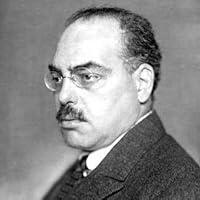
Rudolf Hilferding
Об авторе
Rudolf Hilferding was an influential Austrian economist and a prominent figure in the development of Marxist economics. He is best known for his work 'Finance Capital,' where he explored the relationship between finance and industrial capital, arguing that the concentration of capital leads to monopolies and a new form of capitalism. His theories provided a critical analysis of the capitalist system and paved the way for further discussions on economic structure and class relations. Hilferding's insights into the nature of capital accumulation and the role of finance in economic development were groundbreaking and continue to be referenced in contemporary economic discussions.
Throughout his career, Hilferding contributed significantly to Marxist theory and was involved in political movements advocating for socialism. He faced persecution due to his political beliefs, which ultimately led to his exile. Despite these challenges, Hilferding remained committed to his research and writings, influencing future generations of economists and political theorists. His legacy is marked by his rigorous analytical approach and his ability to intertwine economic theory with practical political considerations.